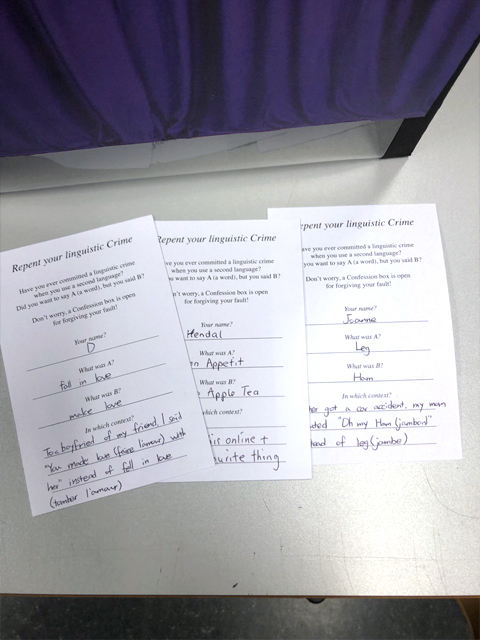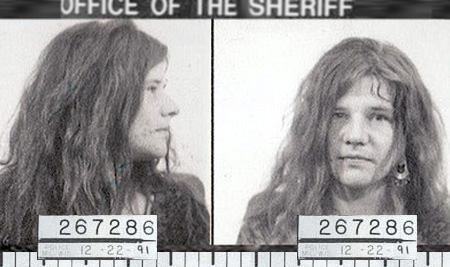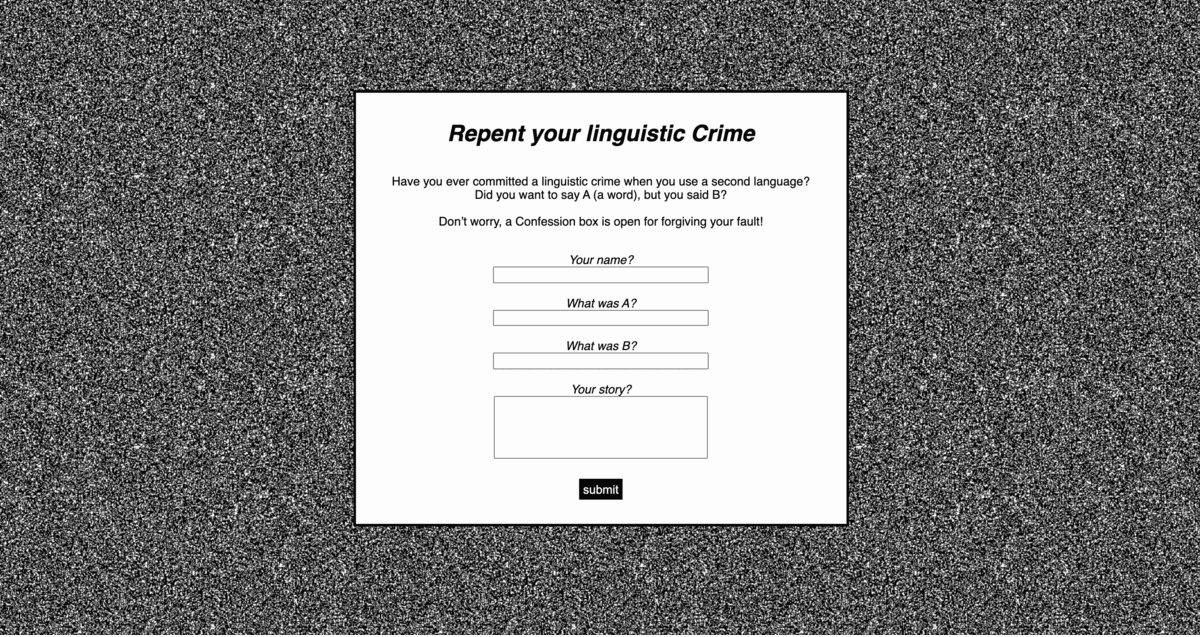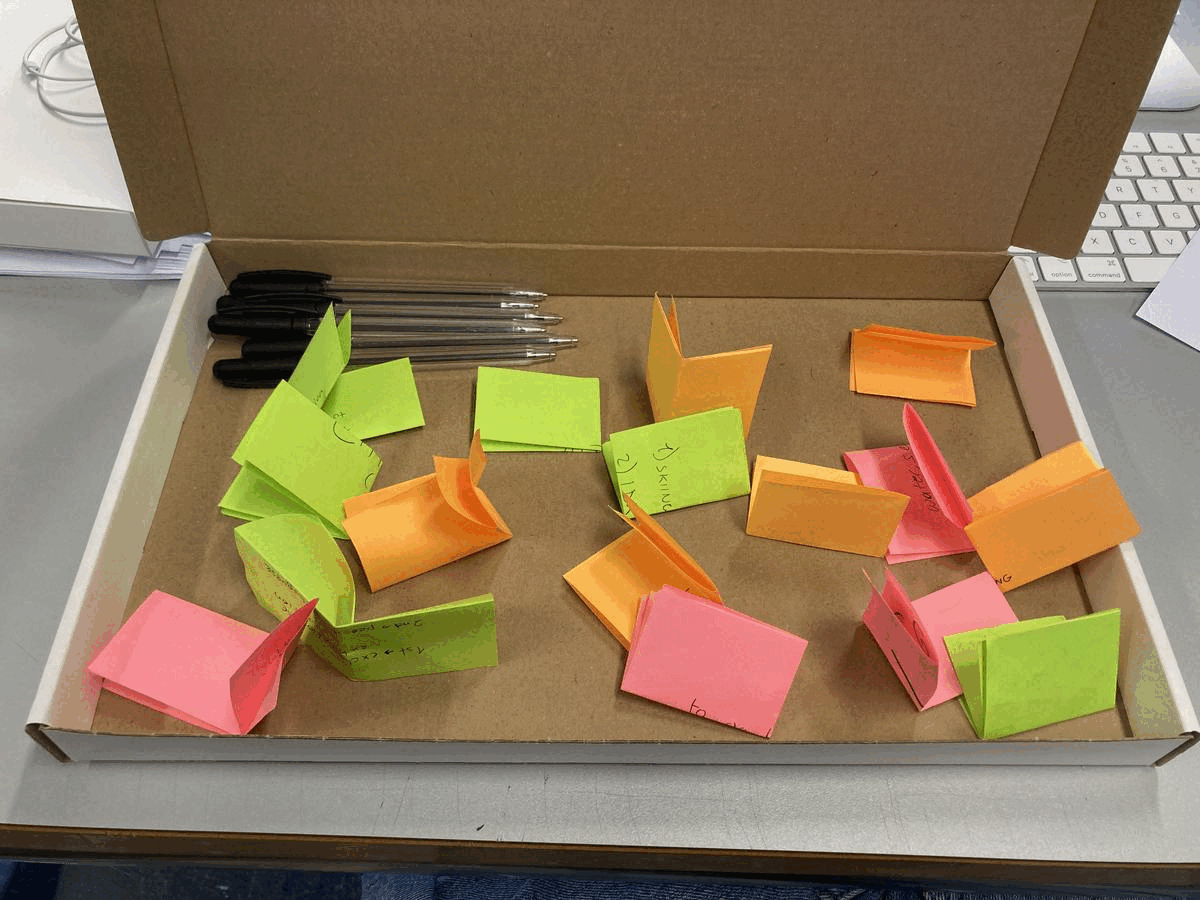User:Euna/Graduation: Difference between revisions
No edit summary |
No edit summary |
||
| Line 1: | Line 1: | ||
= | =Project Proposal= | ||
==Working Title== | |||
Linguistic criminals in the looking-screen world | |||
==What to make== | |||
Ai become smarter and smarter. Grammarly corrects my sentence, recommends a better word, and google translation makes fewer errors. This exaggerates the distinction between "correct" and "wrong" language and lowers the poetic charm of mistranslation. I felt a necessity to arrange a shelter for linguistic criminals like me who have made grammatical errors which they are not ashamed of, and a playground with plenty of poetic licenses. | |||
For my graduation project, I’m making a virtual space(web), the looking-screen world where any linguistic variation, so-called, pidgin or linguistic error, is not considered as "wrong". In the reality, people make a social promise around the use of language and we use it obeying this linguistic rule. But in this looking-screen world, this process will be reversed. Like Humpty Dumpty in Through the Looking-Glass of Louis Carroll, linguistic criminals will create collectively (further explanation about collaboration in 2-1) our alternative language and visitors of the looking-screen world should use it. I call this language Frabjousish, Frabjous (invented word by Louis Carroll, fair + joyous) + ish (suffix meaning relating to). | |||
==How to make== | |||
The difference between Frabjousish and English is its use of the word and its sentence structure that second language users are often troubled with. (I may not talk about the pronunciation problem, due to time limit and the relevancy with my thesis.) As benefits the official language of the looking-screen world, those mistakes are considered as standard. These replace English that especially Grammarly and Google translation believe. | |||
e.g) I confused the word "overalls" (saloppette in French) with "Slut" (salope in French). So all the "overalls" is replaced by "Slut". | |||
e.g2) In Korean, we don't use "I" and the basic sentence structure is S+O+V. So for "I like cat", the filter convert it to "Cat like" | |||
With the mouse hovers ono the converted word and sentence, user can open a tooltip about the originally intended word and related explanation appears. And the click leads to its dictionary webpage. hackpact : file:///Users/euna/Desktop/hp/hp3.html | |||
I regard Frabjousish as a linguistic filter firstly, for the reason of how it functions. And I imagine its ultimate form is Chrome Extension | |||
But, considering the time limit and my technical capacity, I may not manage it. Instead, I'm creating a spaces for textual activities in Frabjousish (further explanation on 2-2). | |||
===Collaborative creation of Frabjousish=== | |||
As Frabjousish is nourished by linguistic crimes, I'm collecting those crimes from different people and this is why I said: "collaborative creation". | |||
*Sentence structure* | |||
A Dutch artist Nicoline van Harskamp collected typical grammar mistakes of second language speaker of English, Distorters (2013-16) which I may use as a source. (I'll ask her for her permission) | |||
e.g) create verb with adjective.(She slowly olds.), apply gendered pronoun to refer to noun.(I lost my key so I must find her.) | |||
*Choice of word* | |||
I'm collecting this type of slip of the tongue case by three methods: | |||
https://pad.xpub.nl/p/slip_tongue | |||
workshop | |||
It will happen on 29th Nov. at BuitenBoel. Also, other online workshops will be held. | |||
We will have a small conversation table and the output will voice-records of participant's responses. | |||
Frabjousish dictionary | |||
Whoever wants to contribute to this project, can come to this website. The biggest advantage is no time-space limit to participate. Also, their inputs are directly transferred to JSON file(storage of data), so, user's contribution update Frabjousish in real-time. | |||
confession box | |||
A small box left at school/BuitenBoel/Leeszaal (need to ask for their permission) with questionnaires and pens. A suitable form for shy linguistic criminals! | |||
https://hub.xpub.nl/sandbot/~eunalee/hackpact/confession.jpg | |||
<span style="width:50px"> | |||
https://hub.xpub.nl/sandbot/~eunalee/hackpact/confession2.jpg | |||
</span> | |||
*People are asked to respond to these questions:* | |||
Have you ever committed a linguistic crime when you use a second (or third) language? Did you want to say A, but you said B? Don't be shy, please confess it! | |||
Your initial name? | |||
What was A? | |||
What was B? | |||
In which context? | |||
===Textual activities in Frabjousish=== | |||
*chatroom* | |||
An anonymous chatting happens. Each person is given 6-digit number, like a criminal. Inevitably, everyone commits a linguistic crime in this chatroom as their text is translated in Frabjousish. | |||
https://www.sheltonlegal.com/MugShot2--450x267.jpg | |||
*reading room | |||
people read books translated into Frabjousish. There are "Through the looking-mirror", "The book of sand", etc. | |||
https://hub.xpub.nl/sandbot/~eunalee/hackpact/alice.jpg | |||
*poetry room (?) | |||
A space for interactive computational poetry (taking the syllable "si" which means 'poetry' in Korean as a starting point.) | |||
*Dictionary (HTML made with Flask) | |||
this is where the online database contribution happens. People can submit their anecdotes and take a look at other's experiences. It is a publishing platform and an archive at the same time. | |||
https://hub.xpub.nl/sandbot/~eunalee/flask/ | |||
https://hub.xpub.nl/sandbot/~eunalee/hackpact/dict.gif | |||
Aside from language, this project shows my interest in collective writing. Both are the reflection of my belief "Anyone can make voice" against the hegemonic notion, the standard language and the concept of 'the author'. | |||
==Personal Context== | |||
From my bachelor’s degree in graphic design in France, the language and its interpretation are the center of interest of my projects. To be an editorial designer, I learned to understand visual and textual language, and how it could be perceived by readers. And as a foreign speaker, every day I’ve encountered the linguistic collision between Korean, French, and English; especially the homonym between different languages. For this reason, I enjoy testing the limits of language. | |||
*Si (2018, printed book of poetry)* | |||
Poems about homonyms between French and Korean | |||
*Vegetable section (2019 two-player board game)* | |||
There are ten shape cards and nine vegetable names written on the board. One chooses an image and a vegetable name and convinces their relation. For example, I believe a red circle is a banana because I saw a red banana in Cambodia and this image is its cross-section. | |||
If the other admits, you get 1 point. In the end, the winner obtains the right to name the last image. | |||
*Merchandise Poetry (2019 online poetry website)* | |||
I codified numbers underneath the barcode to alphabet letters. (1->e, 2->a...). Each product gets its own short sentence. Then, google translated it in every available language on google. | |||
When those outputs are connected, they make a poetry. | |||
With a barcode scan of a merchandise on the website, the user can get the poetry on the receipt. | |||
*Standart Dictionary (2021 dictionary website)* | |||
During SI18, the radio, I did voice performances and encountered difficult words to pronounce. I thought to make a "neutral voice" machine, but rapidly, I recognised how the idea of "neutral" is hegemonic. | |||
So, I turned my gaze on making a virtual space where my pronunciation is considered as Standard. Each word has five version of pronunciations for (french like, french-korean like, korean like, korean-american like, american like.) When the pronunciation button is pressed, one of my pronunciation is played randomly. And my last project during this Special issue was to invite my friends to pronounce like I did. | |||
I learned Flask to use a random function on the website. | |||
Later, I discovered its 'submit' function to the data storage file. That means, finally I can invite others to share their linguistic experiences online. It was not possible with the printed materials and flat HTML. | |||
==Larger Context== | |||
Esperanto is made to reduce the division and friction between different language user in Poland in early 1880. According to What is Esperanto? from the Virtual Esperanto Library, the second effect of this auxiliary language is the protection of the minority languages, which would have a better chance of survival than in a world dominated by a few powerful languages. Both Frabjousish and Esperanto are a counter-hegemonic linguistic gesture and an attempt to protect the language of minority. | |||
Derrida's theory, différance(French term coined by Derrida, means difference and deferral of meaning.) and the computational poetry as its artistic response in 1965 feed my project. By Derrida, a simple word can signify lots of ideas, so a text is undecidable. The random generating function of the computer fits well to realise this "undecidability" of text and that's why computational poetry emerged. | |||
Even more, through studying how computational poetry changes after the popularisation of the personal computer and the internet from 1995, which means the readers can participate actively, I understand the necessity of user's intervene in my project. | |||
==Methodology== | |||
===Research keyword=== | |||
collective writing | |||
computational poetry | |||
translation | |||
language | |||
pidgin | |||
Participatory art | |||
===Who can help=== | |||
Aymeric, Manetta and Michael for conceptual and technical matters. | |||
Natasha for collaborative writing | |||
Nicoline van Harskamp as she works on Pidgin | |||
Participants from various backgrounds to nourish my database. | |||
Angeliki for references about voice | |||
* | ===Timeline=== | ||
I should contact as many second-language user as possible to nourish my database. -> contact language school* | |||
*oct | |||
- workshop in Leeszaal : A small round around / I pronounced 시 [si] and participants gave me their lexical(or personal) meaning. | |||
-> from the smallest linguistic piece, syllable, each person imagine different thing. | |||
https://hub.xpub.nl/sandbot/~eunalee/hackpact/leeszaal.gif | |||
*nov | |||
- make a dictionary page (basic structure + submit function) | |||
(-> should figure out if it's possible, otherwise another platform for archive) | |||
- test words and sentence structure convert function in Python -> at least, make small word converter | |||
- 29th nov workshop : conversation around slip tongue experience | |||
* | *dec* | ||
- contact Nicoline van Harskamp -> show my project(dictionary + hackpact of convertor), interview and propose her a collaboration | |||
- connect dictionary database to python | |||
*jan | |||
- make poetry writing room | |||
- make a index.html where hosts subordinate rooms | |||
*feb | |||
- chatroom making | |||
== | ==Reference== | ||
===Read=== | ===Read=== | ||
Carroll, L. (2011) Through the Looking-Glass (Penguin Classics), Penguin. | |||
Flusser V., Poster, M., Nancy Ann Roth and Ebrary, I. (2011) Does writing have a future?, University Of Minnesota Press. | |||
Rettberg, S. (2014) 'Collaborative Narrative' in The Johns Hopkins Guide to Digital Media, Johns Hopkins University Press https://elmcip.net/critical-writing/collaborative-narrative | |||
Funkhouser, C. (2007). Prehistoric digital poetry : an archeology of forms, 1959-1995, The University Of Alabama Press | |||
Glazier, L. P. (2002). Digital poetics : the making of E-poetries, The University Of Alabama Press | |||
Van Harskamp, N (2020) My Name Is Language, Archive Books | |||
Hancher, M. (1981) 'Humpty Dumpty and Verbal Meaning' in The Journal of Aesthetics and Art Criticism, Vol. 40, No. 1 (Autumn, 1981), pp. 49-58 (10 pages), Wiley | |||
Multiple authors of Akademie Schloss Solitude (2021) Untranslatable Terms of Cultural Practices, Archive Books | |||
Goldsmith, K. (2011) Uncreative writing, Columbia University Press | |||
Dworkin C. D. and Goldsmith, K. (2011). Against expression : an anthology of conceptual writing. Evanston Illinois: Northwestern University Press. | |||
===Project=== | ===Project=== | ||
I love E Poetry, http://iloveepoetry.org/?p=11968 | |||
Antoni Muntada, The file Room, https://rhizome.org/editorial/2016/nov/17/antoni-muntadas-the-file-room/ | |||
ParlezVous1016 https://www.parlezvous1060.be/fr/w/Allumette.html | |||
Exquisite corpse https://en.wikipedia.org/wiki/Exquisite_corpse | |||
* | Nicoline van Harskamp, PDGN and Distorters | ||
Esolang, the esoteric programming languages wiki https://esolangs.org/wiki/Esoteric_programming_language | |||
*contact list of Language school | |||
CIEF Dijon, professors proposed to their students -> waiting for result | |||
CPU Lyon | |||
Leeszaal Dutch class (Cafe NL) | |||
Dutch Courses Rotterdam -> setting the schedule | |||
Language & Training Centre (LTC) | |||
Rotterdam International Secondary School | |||
Dutch courses for non Dutch in The Hague | |||
masterclassdutch in Rotterdam | |||
CBE Language school in Rotterdam | |||
tulp educatie in Rotterdam | |||
Revision as of 10:32, 9 December 2021
Project Proposal
Working Title
Linguistic criminals in the looking-screen world
What to make
Ai become smarter and smarter. Grammarly corrects my sentence, recommends a better word, and google translation makes fewer errors. This exaggerates the distinction between "correct" and "wrong" language and lowers the poetic charm of mistranslation. I felt a necessity to arrange a shelter for linguistic criminals like me who have made grammatical errors which they are not ashamed of, and a playground with plenty of poetic licenses.
For my graduation project, I’m making a virtual space(web), the looking-screen world where any linguistic variation, so-called, pidgin or linguistic error, is not considered as "wrong". In the reality, people make a social promise around the use of language and we use it obeying this linguistic rule. But in this looking-screen world, this process will be reversed. Like Humpty Dumpty in Through the Looking-Glass of Louis Carroll, linguistic criminals will create collectively (further explanation about collaboration in 2-1) our alternative language and visitors of the looking-screen world should use it. I call this language Frabjousish, Frabjous (invented word by Louis Carroll, fair + joyous) + ish (suffix meaning relating to).
How to make
The difference between Frabjousish and English is its use of the word and its sentence structure that second language users are often troubled with. (I may not talk about the pronunciation problem, due to time limit and the relevancy with my thesis.) As benefits the official language of the looking-screen world, those mistakes are considered as standard. These replace English that especially Grammarly and Google translation believe.
e.g) I confused the word "overalls" (saloppette in French) with "Slut" (salope in French). So all the "overalls" is replaced by "Slut".
e.g2) In Korean, we don't use "I" and the basic sentence structure is S+O+V. So for "I like cat", the filter convert it to "Cat like"
With the mouse hovers ono the converted word and sentence, user can open a tooltip about the originally intended word and related explanation appears. And the click leads to its dictionary webpage. hackpact : file:///Users/euna/Desktop/hp/hp3.html
I regard Frabjousish as a linguistic filter firstly, for the reason of how it functions. And I imagine its ultimate form is Chrome Extension But, considering the time limit and my technical capacity, I may not manage it. Instead, I'm creating a spaces for textual activities in Frabjousish (further explanation on 2-2).
Collaborative creation of Frabjousish
As Frabjousish is nourished by linguistic crimes, I'm collecting those crimes from different people and this is why I said: "collaborative creation".
- Sentence structure*
A Dutch artist Nicoline van Harskamp collected typical grammar mistakes of second language speaker of English, Distorters (2013-16) which I may use as a source. (I'll ask her for her permission)
e.g) create verb with adjective.(She slowly olds.), apply gendered pronoun to refer to noun.(I lost my key so I must find her.)
- Choice of word*
I'm collecting this type of slip of the tongue case by three methods: https://pad.xpub.nl/p/slip_tongue
workshop It will happen on 29th Nov. at BuitenBoel. Also, other online workshops will be held. We will have a small conversation table and the output will voice-records of participant's responses.
Frabjousish dictionary Whoever wants to contribute to this project, can come to this website. The biggest advantage is no time-space limit to participate. Also, their inputs are directly transferred to JSON file(storage of data), so, user's contribution update Frabjousish in real-time.
confession box A small box left at school/BuitenBoel/Leeszaal (need to ask for their permission) with questionnaires and pens. A suitable form for shy linguistic criminals!


- People are asked to respond to these questions:*
Have you ever committed a linguistic crime when you use a second (or third) language? Did you want to say A, but you said B? Don't be shy, please confess it!
Your initial name?
What was A?
What was B?
In which context?
Textual activities in Frabjousish
- chatroom*
An anonymous chatting happens. Each person is given 6-digit number, like a criminal. Inevitably, everyone commits a linguistic crime in this chatroom as their text is translated in Frabjousish.

- reading room
people read books translated into Frabjousish. There are "Through the looking-mirror", "The book of sand", etc.

- poetry room (?)
A space for interactive computational poetry (taking the syllable "si" which means 'poetry' in Korean as a starting point.)
- Dictionary (HTML made with Flask)
this is where the online database contribution happens. People can submit their anecdotes and take a look at other's experiences. It is a publishing platform and an archive at the same time.
https://hub.xpub.nl/sandbot/~eunalee/flask/

Aside from language, this project shows my interest in collective writing. Both are the reflection of my belief "Anyone can make voice" against the hegemonic notion, the standard language and the concept of 'the author'.
Personal Context
From my bachelor’s degree in graphic design in France, the language and its interpretation are the center of interest of my projects. To be an editorial designer, I learned to understand visual and textual language, and how it could be perceived by readers. And as a foreign speaker, every day I’ve encountered the linguistic collision between Korean, French, and English; especially the homonym between different languages. For this reason, I enjoy testing the limits of language.
- Si (2018, printed book of poetry)*
Poems about homonyms between French and Korean
- Vegetable section (2019 two-player board game)*
There are ten shape cards and nine vegetable names written on the board. One chooses an image and a vegetable name and convinces their relation. For example, I believe a red circle is a banana because I saw a red banana in Cambodia and this image is its cross-section. If the other admits, you get 1 point. In the end, the winner obtains the right to name the last image.
- Merchandise Poetry (2019 online poetry website)*
I codified numbers underneath the barcode to alphabet letters. (1->e, 2->a...). Each product gets its own short sentence. Then, google translated it in every available language on google. When those outputs are connected, they make a poetry. With a barcode scan of a merchandise on the website, the user can get the poetry on the receipt.
- Standart Dictionary (2021 dictionary website)*
During SI18, the radio, I did voice performances and encountered difficult words to pronounce. I thought to make a "neutral voice" machine, but rapidly, I recognised how the idea of "neutral" is hegemonic. So, I turned my gaze on making a virtual space where my pronunciation is considered as Standard. Each word has five version of pronunciations for (french like, french-korean like, korean like, korean-american like, american like.) When the pronunciation button is pressed, one of my pronunciation is played randomly. And my last project during this Special issue was to invite my friends to pronounce like I did.
I learned Flask to use a random function on the website. Later, I discovered its 'submit' function to the data storage file. That means, finally I can invite others to share their linguistic experiences online. It was not possible with the printed materials and flat HTML.
Larger Context
Esperanto is made to reduce the division and friction between different language user in Poland in early 1880. According to What is Esperanto? from the Virtual Esperanto Library, the second effect of this auxiliary language is the protection of the minority languages, which would have a better chance of survival than in a world dominated by a few powerful languages. Both Frabjousish and Esperanto are a counter-hegemonic linguistic gesture and an attempt to protect the language of minority.
Derrida's theory, différance(French term coined by Derrida, means difference and deferral of meaning.) and the computational poetry as its artistic response in 1965 feed my project. By Derrida, a simple word can signify lots of ideas, so a text is undecidable. The random generating function of the computer fits well to realise this "undecidability" of text and that's why computational poetry emerged. Even more, through studying how computational poetry changes after the popularisation of the personal computer and the internet from 1995, which means the readers can participate actively, I understand the necessity of user's intervene in my project.
Methodology
Research keyword
collective writing computational poetry translation language pidgin Participatory art
Who can help
Aymeric, Manetta and Michael for conceptual and technical matters. Natasha for collaborative writing Nicoline van Harskamp as she works on Pidgin Participants from various backgrounds to nourish my database. Angeliki for references about voice
Timeline
I should contact as many second-language user as possible to nourish my database. -> contact language school*
- oct
- workshop in Leeszaal : A small round around / I pronounced 시 [si] and participants gave me their lexical(or personal) meaning.
-> from the smallest linguistic piece, syllable, each person imagine different thing.

- nov
- make a dictionary page (basic structure + submit function) (-> should figure out if it's possible, otherwise another platform for archive) - test words and sentence structure convert function in Python -> at least, make small word converter - 29th nov workshop : conversation around slip tongue experience
- dec*
- contact Nicoline van Harskamp -> show my project(dictionary + hackpact of convertor), interview and propose her a collaboration - connect dictionary database to python
- jan
- make poetry writing room - make a index.html where hosts subordinate rooms
- feb
- chatroom making
Reference
Read
Carroll, L. (2011) Through the Looking-Glass (Penguin Classics), Penguin. Flusser V., Poster, M., Nancy Ann Roth and Ebrary, I. (2011) Does writing have a future?, University Of Minnesota Press. Rettberg, S. (2014) 'Collaborative Narrative' in The Johns Hopkins Guide to Digital Media, Johns Hopkins University Press https://elmcip.net/critical-writing/collaborative-narrative Funkhouser, C. (2007). Prehistoric digital poetry : an archeology of forms, 1959-1995, The University Of Alabama Press Glazier, L. P. (2002). Digital poetics : the making of E-poetries, The University Of Alabama Press Van Harskamp, N (2020) My Name Is Language, Archive Books Hancher, M. (1981) 'Humpty Dumpty and Verbal Meaning' in The Journal of Aesthetics and Art Criticism, Vol. 40, No. 1 (Autumn, 1981), pp. 49-58 (10 pages), Wiley Multiple authors of Akademie Schloss Solitude (2021) Untranslatable Terms of Cultural Practices, Archive Books Goldsmith, K. (2011) Uncreative writing, Columbia University Press Dworkin C. D. and Goldsmith, K. (2011). Against expression : an anthology of conceptual writing. Evanston Illinois: Northwestern University Press.
Project
I love E Poetry, http://iloveepoetry.org/?p=11968 Antoni Muntada, The file Room, https://rhizome.org/editorial/2016/nov/17/antoni-muntadas-the-file-room/ ParlezVous1016 https://www.parlezvous1060.be/fr/w/Allumette.html Exquisite corpse https://en.wikipedia.org/wiki/Exquisite_corpse Nicoline van Harskamp, PDGN and Distorters Esolang, the esoteric programming languages wiki https://esolangs.org/wiki/Esoteric_programming_language
- contact list of Language school
CIEF Dijon, professors proposed to their students -> waiting for result CPU Lyon Leeszaal Dutch class (Cafe NL) Dutch Courses Rotterdam -> setting the schedule Language & Training Centre (LTC) Rotterdam International Secondary School Dutch courses for non Dutch in The Hague masterclassdutch in Rotterdam CBE Language school in Rotterdam tulp educatie in Rotterdam
